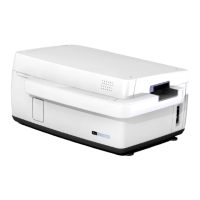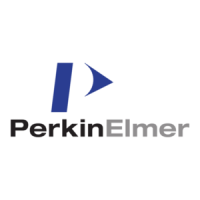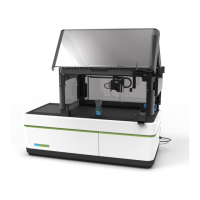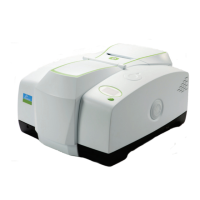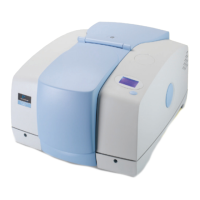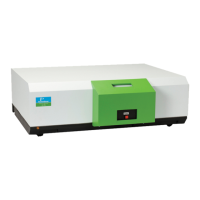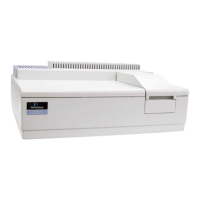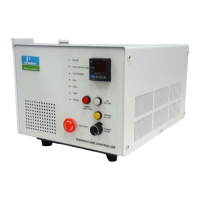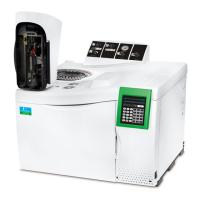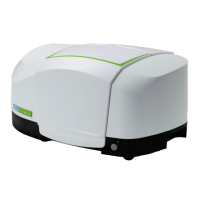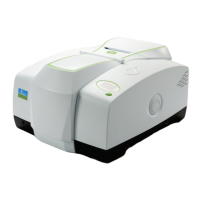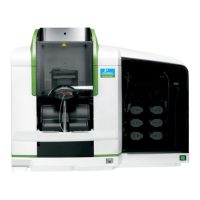Do you have a question about the PerkinElmer OilExpress 4 and is the answer not in the manual?
Provides information about the user guide's scope and purpose, including installation notes and related documents.
Offers recommendations on how to use the guide effectively, suggesting sections to read in sequence for system understanding.
Explains text formatting like normal text, bold text, and uppercase for keys used in the manual.
Defines how PerkinElmer part numbers are presented in the document.
Details the standard formats used to highlight special circumstances and warnings.
Introduces the OilExpress 4 system and its optimization for FT-IR analysis of lubricants.
Explains the principles of IR analysis for monitoring lubricant condition, additive depletion, and contamination.
Describes general safety practices and precautions for operating the OilExpress 4 System.
Provides a summary of key safety points and precautions for the OilExpress 4 System.
Covers general operating conditions and electrical safety requirements for the system.
Details mechanical hazards associated with the autosampler and environmental requirements for system operation.
Provides guidance on the safe use, handling, and disposal of flammable solvents and samples.
Explains how to obtain and use Material Safety Data Sheets (MSDS) for hazardous materials.
Lists the technical specifications for the OilExpress 4 system, including throughput and sample volumes.
Describes the liquid autosampler, its features, and key components like the robotic arm and VersaTips.
Details the connection panel on the autosampler, including power and communication ports.
Explains the Varispan pipetting arm, its sampling tips, and their functionality for sample aspiration.
Describes the system liquid container, its placement, and associated part numbers.
Covers labware positioning on the autosampler deck, including deck layouts and sample rack types.
Details the types of sample racks supported, such as 96-position and 32-position racks.
Explains the use of tip boxes for clean disposable tips and for depositing used tips.
Describes the injection station's function in dispensing samples and cleaning solvent to the flow cell.
Details the sample compartment of the spectrometer, including beam path and window types.
Describes the two-port flow cell, its installation, and connection to the injection station and waste container.
Explains the liquid presence sensor's role in detecting sample flow and its connection to the FCM.
Illustrates the power adaptor and communication ports on the rear of the spectrometer.
Shows the electrical, fluid, and exhaust connections on the rear of the Fluid Control Module (FCM).
Details the electrical connections for the FCM, including power supply and USB hub connections.
Illustrates the fluid tubing connections for the FCM, including waste and exhaust ports.
Provides specific notes for FT-IR only analysis using the 96-position rack with the sensor bar.
Details the step-by-step procedure for performing FT-IR analysis on a single-spectrometer system.
Outlines the FT-IR analysis procedure for a dual-spectrometer system.
Introduces the basic functionality of the OilExpress 4 software covered in this section.
Provides instructions on how to launch the OilExpress 4 software application.
Describes the main OilExpress 4 software window, including menus, toolbar, navigation, and status bars.
Covers sample preparation steps and the system priming procedure before analysis.
Explains how to set system options for sampling heights using fixed or ultrasonic methods.
Details how to save, export spectra, export results as CSV, and generate reports.
Guides users through the process of setting up and running a batch analysis.
Explains how to change scan and instrument settings, including resolution and AVI correction.
Covers AVI correction and calibration objectives for consistent instrument performance.
Describes system validation procedures like running control samples and system checks.
Covers flow cell maintenance, cleaning using software, and removal/installation procedures.
Details daily and weekly preventative maintenance for the autosampler, including priming and cleaning.
Outlines spectrometer maintenance tasks and use of the Adjustments Toolbox.
Explains how to change to a single-spectrometer system for DUO systems during maintenance.
Provides instructions for removing and installing the sample shuttle from the spectrometer.
Covers cleaning and checking connections for the Fluid Control Module (FCM).
Recommends contacting a service representative for autosampler deck calibration after moving the system.
Lists common problems, their possible causes, and corrective actions for the OilExpress 4 system.
Provides information and procedures for decontaminating equipment before return or service.
Details Waste Electrical and Electronic Equipment (WEEE) disposal instructions and environmental objectives.
Explains the principles of liquid handling, including sampling, aspiration, and dispensing for the autosampler.
Lists materials in contact with samples and cleaning fluids within the system's fluid path.
| Brand | PerkinElmer |
|---|---|
| Model | OilExpress 4 |
| Category | Laboratory Equipment |
| Language | English |
